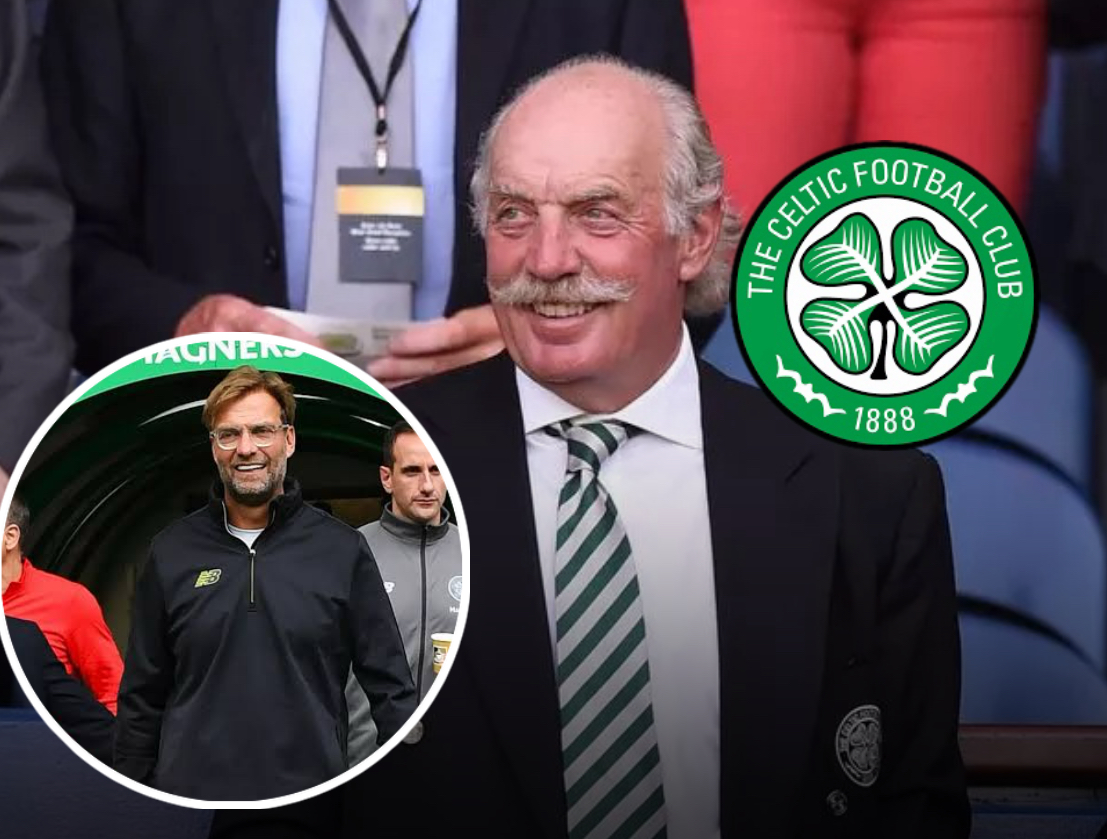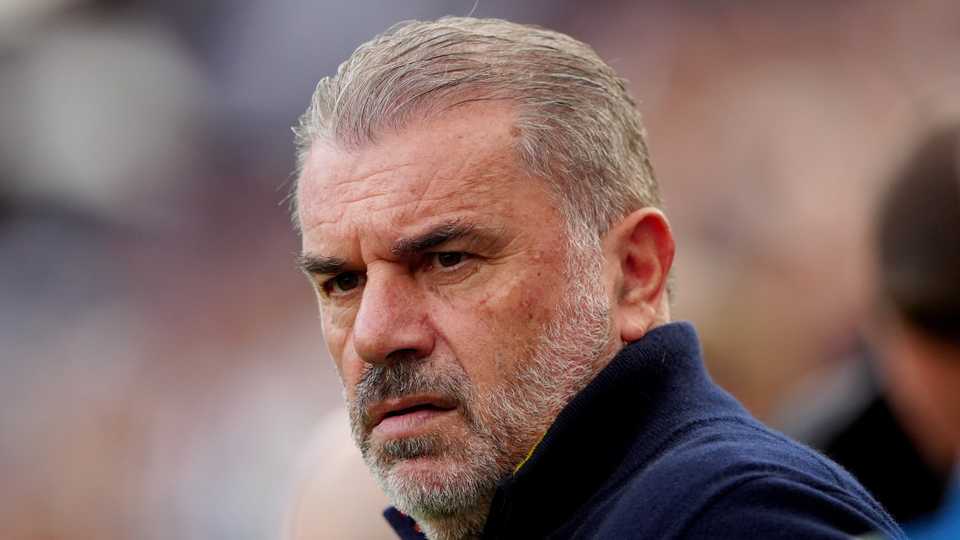FANS ARE ALL SAYING THE SAME THING AFTER INSIDER REVEALS JURGEN KLOPP FINAL TALK WITH DERMOT DESMOND
In the aftermath of a seismic shift at Celtic, the suggestion that one of football’s most high-profile managers could be heading to Glasgow has sent shockwaves not only through the Hoops’ camp, but also deep into the corridors of the rivalry with Rangers. The notion that Jürgen Klopp, the Champions League-winning former Liverpool manager, might land the Celtic job has triggered strong reaction from both sides — and places a renewed spotlight on Celtic’s majority shareholder Dermot Desmond, who is increasingly being urged to dig deeper than ever to steady the ship and deliver on ambitions.
The spark: Klopp for Celtic?
It all started with a provocative piece of speculation on a podcast featuring former Celtic player Charlie Mulgrew, who argued that Celtic should “go all out” to bring Jürgen Klopp through the door. Mulgrew floated the idea of offering Klopp a package in the region of £7 million per annum, suggesting that the club’s stature in Europe—despite recent troubles—could be leveraged to attract a top-tier name.
The reaction was immediate: former Rangers players such as Kris Boyd and Steven Naismith responded with disbelief, mocking the idea as far-fetched and pointing to reality: Klopp has opportunities at the highest level in Europe.
Against that backdrop, Celtic’s internal situation appears messier than ever. The club recently parted ways with manager Brendan Rodgers, following a disappointing start to the season and a myriad of behind-the-scenes frustrations. In a blistering statement, Desmond accused Rodgers of creating a “toxic atmosphere,” of being “divisive, misleading and self-serving”, and of undermining board and hierarchy. Silently, the foundation beneath Celtic is shifting.
Why this matters: Stakes high for Celtic
From Celtic’s perspective, the suggestion of Klopp being available is more than just idle chat—it reflects a hunger to make a bold statement. The club faces multiple challenges:
- A squad in transition, with key departures and questions on recruitment.
- A club culture shaken by public internal fallout and leadership friction.
- A title race in the Scottish Premiership that appears fragile, with rivals potentially taking advantage.
In this context, invoking Klopp is symbolic: it suggests Celtic desire is not merely to stabilise, but to re-launch themselves as a serious contender domestically and in Europe. Yet for that to succeed, they must convince a manager of Klopp’s calibre that the Glasgow club is the right next step — given he could command roles at elite clubs elsewhere.
For Desmond and the board, the challenge is immense: they must present a project that appeals to big-name talent, reassure the fanbase, and avoid further disruption. If the Klopp idea is to move from fantasy to possibility, the groundwork must be done — and quickly.
Rangers look on — not indifferent
Meanwhile, Rangers are not passive spectators. The chatter of Klopp trending toward Celtic sends a signal: the Hoops are considering a seismic appointment, and Rangers cannot afford to stand still. From the vantage of Ibrox, any big move by Celtic is a direct threat. The rivalry demands alertness.
The reaction from the Rangers camp, particularly from Boyd and Naismith, reflects both scepticism and defensive posture:
“If you’re Jurgen Klopp, are you thinking, ‘I’m going to Celtic when I could go to an elite top-five league in the world?’” Naismith asked.
Their discomfort may stem from the fact that even speculation of Celtic making such a move forces Rangers to monitor, respond and ensure they do not fall behind in the arms race for status, players and manager.
Desmond: Under pressure and under scrutiny
At the heart of all this sits Dermot Desmond — majority shareholder, figurehead, and now the man under the microscope. His recent statement about Rodgers wasn’t just a rebuke; it signalled a power play, a resetting of expectations.
Critics argue that the statement may hamper recruitment: ex-players & pundits raised concern that high-profile candidates might think twice about stepping into a club where the top man so publicly lacerated the outgoing manager.
Now, with the Klopp talk, Desmond’s role is even more salient. Can he pivot from internal storm-management to a proactive rebuild? Will he commit the necessary resources — both in personnel and in vision — to make Celtic an elite destination again? The expectations are no longer just winning domestically; the club must project ambition that resonates across Europe.
The challenges: Why Klopp to Celtic is a monumental ask
While the idea of Jürgen Klopp at Celtic may excite fans, the practicalities are stark:
- Financial feasibility. Offering a competitive salary and support structure suitable to Klopp’s stature would be enormous for a Scottish club.
- Competition for managers. As Boyd and Naismith pointed out, Klopp has other options in elite leagues. Any bid would require genuine selling of the project.
- Squad readiness. Even the best manager needs a squad capable of competing. Celtic’s current state suggests a rebuild rather than immediate resurgence.
- Public relations and culture. The fallout with Rodgers raises caution flags: candidates will study the environment, the board dynamics and the long-term vision.
- Expectation management. Bringing in a high-profile name raises expectations sky-high. If results don’t follow, the fallout may be bigger.
Taken together, the Klopp story serves more as a symbolic catalyst than a likely immediate appointment. But that symbolic value matters.
What’s next for Celtic — and the ripple effect
In the short term, Celtic have appointed interim management — veteran Martin O’Neill and Shaun Maloney. Their job: steady the club, restore internal confidence, and build a bridge to the next full-time manager. Yet their appointment only delays the decision; the long-term direction remains uncertain.
Desmond must now lead on several fronts:
- Define the vision: Outlining what kind of club Celtic want to be in the next 3-5 years — domestically dominant, European contender, talent developer or all of those.
- Back the manager: Whether it’s Klopp (hypothetically) or someone else, the board must give them the tools — recruitment, infrastructure, budget — to succeed.
- Manage the culture: The post-Rodgers fallout exposed tensions. A better environment must be crafted, one that attracts and retains top talent.
- Communicate clearly: The public attacks risk alienating candidates, fans and players. A unified message is needed.
For Rangers, the ripple effect is equally important. Celtic making moves casts a long shadow. It puts pressure on their own recruitment, structure and ambition. They may not need to compete for Klopp, but they must respond to Celtic’s momentum threats.
Conclusion: Big talk, bigger stakes
The mention of Jürgen Klopp as a potential future Celtic manager is more than mere speculation—it reflects the scale of ambition and the level of disruption within Scottish football’s top tier. For Celtic, it represents an opportunity — but also a gargantuan challenge. For Rangers, it signals red-alert: their rivals might be about to fire up the engines.
And at the centre of it all? Dermot Desmond, holding the baton. Whether he digs deeper and steadies the ship — or the moment slips away — could define Celtic’s trajectory for years to come.








Post Comment